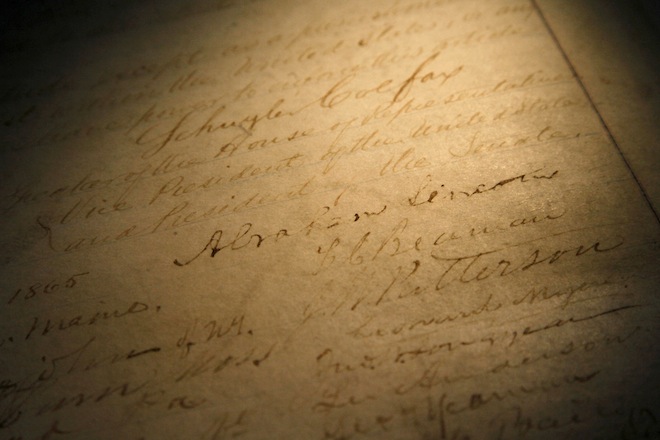We’ve posted copies of the official documents marking the final steps in Mississippi’s 148-year road to banning slavery.
In a nation of laws, the gravest matters still involve — in fact, require — the most mundane of clerical duties be carefully and faithfully executed. Votes must be diligently tabulated; signatures and seals must be affixed to documents; papers must be filed in the correct office; and so on. Whether it be a routine appropriation or a declaration of war, the formalities are not mere form, but are ultimately the substance of the official act or decision.
And so it came to be that Mississippi’s ratification of the 13th Amendment to the Constitution — the one that bans slavery, no less — was somehow never made official.
The Magnolia State was late to the historical moment, to be sure. It did not get around to ratifying the 13th Amendment until 1995, 130 years after it was officially adopted. But the paperwork was not turned in. As you have probably read by now, the oversight was not discovered until a Mississippi resident (a naturalized U.S. citizen, it should be noted) who had seen Spielberg’s Lincoln, which centers on the congressional battle over the 13th Amendment, became curious about the fate of the amendment in his state. He contacted a friend, who also went to see the movie, and then proceeded to make sure the paperwork was properly submitted to the Federal Register to make Mississippi’s ratification official and complete.
The documents are spare, dry, and clerical, as these things often are. But they are the embodiment of the official deed: “With this action, the State of Mississippi has ratified the 13th Amendment to the Constitution of the United States.” Take a look.






